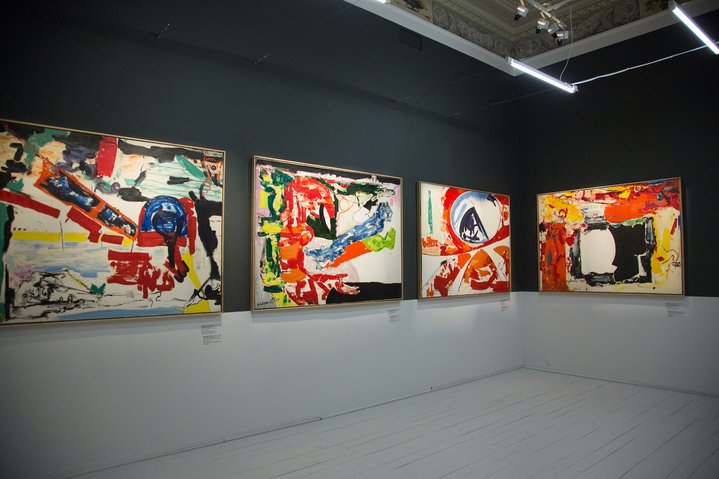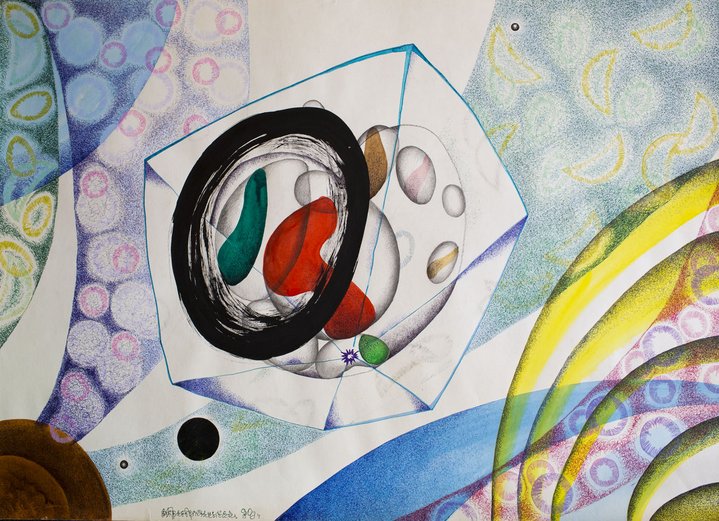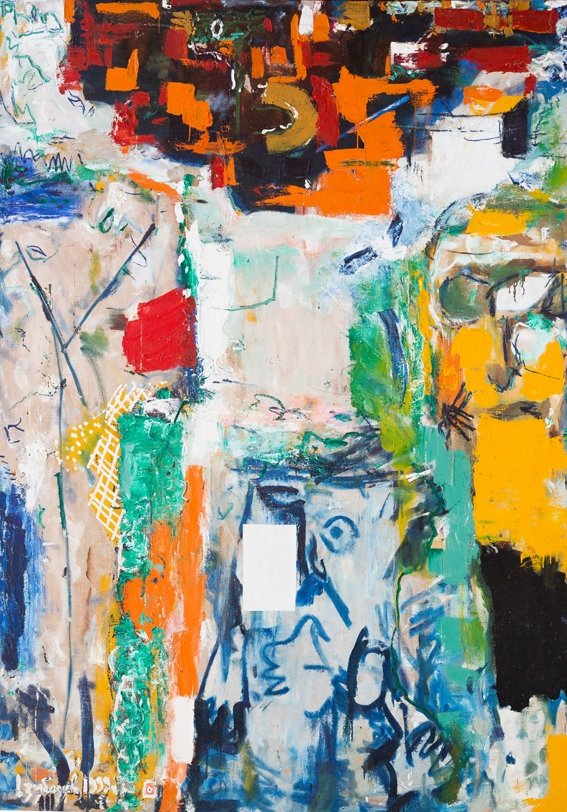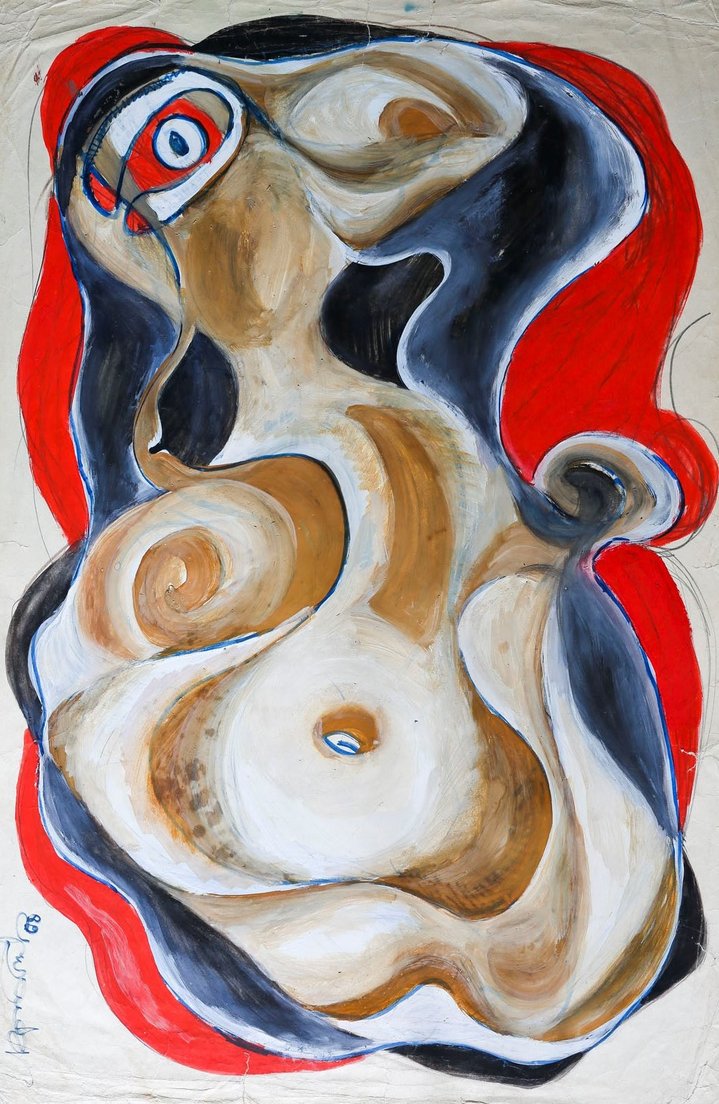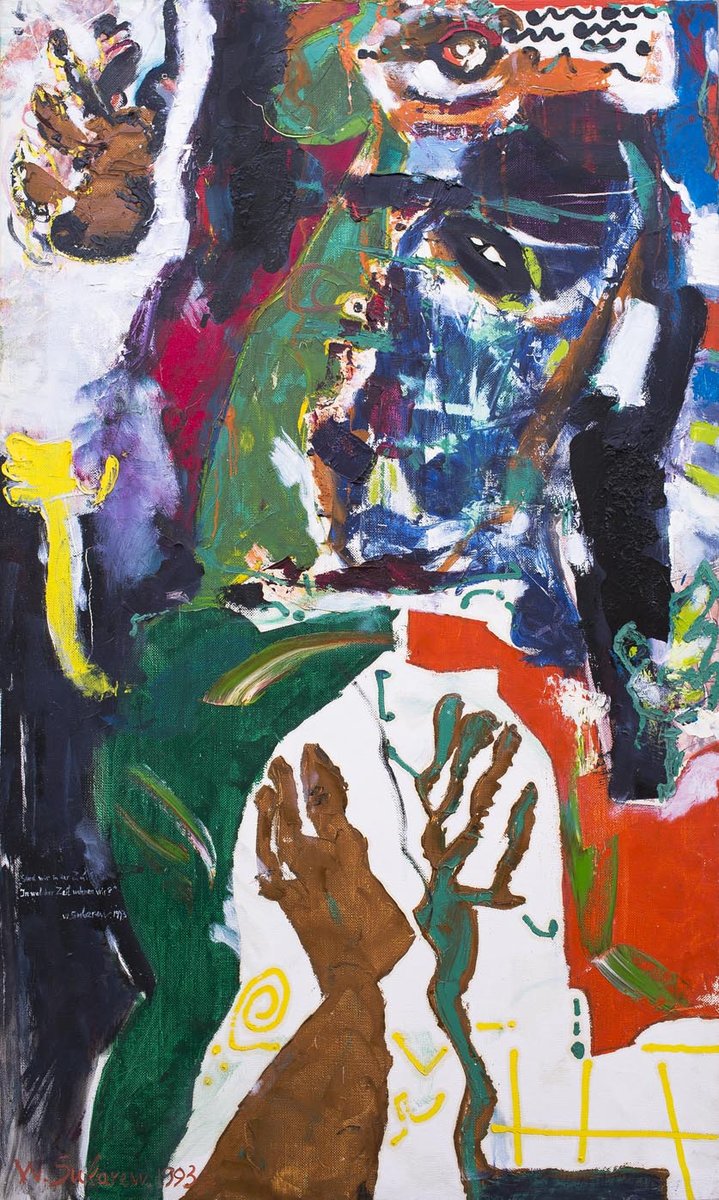Olga Uskova: from a software company to Abstract art

On Moscow’s first museum of Abstract art, scheduled to open in spring 2019. A unique collection of mid-20th century Soviet experimental paintings will go on permanent display in Moscow when Olga Uskova, the founder and president of a Russian software company, opens a museum for her Russian Abstract Art Foundation.
Experimental art was prohibited on ideological grounds for most of the seven decades the Soviet Union existed, and abstract painters were denounced as talentless dabblers. But there was a brief period of political thaw after Josef Stalin’s death in 1953 that let some air into the stifling system and unleashed a burst of artistic innovation.
At the forefront of the movement was the painter, teacher and theoretician Ely Bilyutin, who rejected the official artistic doctrine of Socialist Realism in favour of an individual style free of ideology, which came to be known as the “New Reality.” Bilyutin would give his students specific tasks, like “paint that forest out of the window as if there was a concentration camp on the other side,” according to Ms Uskova. “He wanted them to express intense personal emotions.”
There were parallels between events on the Soviet art scene in the 1950s with momentous developments in the West, where the American abstract expressionist movement was coming of age and propelling New York to take Paris’ place at the centre of the art world. During the political thaw, the Soviets allowed exhibitions of contemporary western art to be shown in Moscow, opening local artists’ eyes to new, spontaneous, and individualistic styles. The idea of abstract art returned for the first time since being buried in the 1920s. For a few years, Bilyutin’s methods were accepted by the Soviet establishment, and the studio where he taught at Moscow’s Polygraphic Institute was allowed to exist alongside the official Union of Artists. He gained a large following, including the now-acclaimed abstract painters Vladislav Zubarev and Vera Preobrazhenskaya.
But it was not to last. While visiting a contemporary art show in Moscow’s Manezh exhibition space in 1962, Soviet leader Nikita Khrushchev went into a rage and lambasted many of the works on show. Within days, the thaw in the art was frosted over. Soviet newspapers were issued a list of artists to villify. Those who had taken part in the exhibition were deprived of commissions. Bilyutin was not spared his share of the flak: he was forbidden to teach in Moscow and declared a parasite. Privately, many New Reality painters took Khrushchev’s disapproval as a huge compliment, but they were left with no choice but to retreat into the obscurity of the artistic underground.
Bilyutin was not to be defeated. He moved his studio to the village of Abramtsevo outside Moscow, historically a favourite haunt of Russian artists before the Revolution, and resumed teaching. Hundreds of artists attended his classes, but they had no opportunity to show or sell their works. Still, not everyone in the artistic community regarded Bilyutin as a saviour. Viktor Pivovarov, a leading member of the highly influential group of artists known as the “Moscow Con- ceptualists,” studied for a year under Bilyutin, but left disillusioned, branding his teacher as a power-hungry bully who had merely worked out a production line for mass-producing artists.
Ms Uskova founded the Russian Abstract Art Foundation in 2013 after buying some 1,000 paintings from Samvel Oganesyan, an Armenian collector who had been a friend of Bilyutin and supported many of the New Reality’s underground artists. Since then, she has overseen the restoration of a former Soviet workers’ club in the north of Moscow that will serve both as a new headquarters for her company and a museum for her art collection. Designed by Soviet constructivist architect Konstantin Melnikov in the 1930s, this light-drenched building will provide a fitting showcase for some of the most exciting and innovative paintings to come out of the turbulent years of the 20th century. The target date for the new museum’s opening is April 2019.






